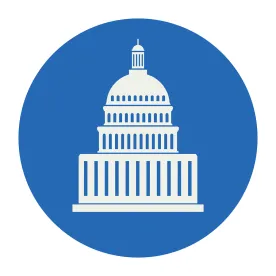As we recently foreshadowed, given the slim Democratic margins in the House and Senate, and a Democratic President, there is the potential for the most significant amendments to the National Labor Relations Act (“NLRA” or “Act”) in its eighty-six (86) year history. On Tuesday night, March 9, 2021, the U.S. House of Representatives took the first step, by voting 225-206 to pass the Protect the Right to Organize Act (“PRO Act”).
This is not the first time the House as passed a version of the PRO Act; just last year around this time, the House did the same. The key difference is that Democrats now have slim control of the U.S. Senate, although the bill faces steep odds of passage given that it is unlikely to garner 60 votes to avoid a filibuster. The PRO Act likely has the support of President Biden, but it is uncertain whether the bill will ever reach the President’s desk.
Substantively, the PRO Act would amend the National Labor Relations Act and constitute the most significant overhaul of federal labor law in decades, strengthening workers’ rights, including their ability to unionize.
For instance, the PRO Act would give the NLRB power to fine companies that retaliate against organizing workers and require arbitration when unionized workers and employers cannot reach agreement on contracts. Other changes include: strengthening workers’ right to strike, overriding state “right to work” laws which allow employees to forgo paying dues in unionized workplaces, and permitting employees to hold union elections off of company premises and use mail or electronic ballots.
Additionally, the PRO Act addresses the so-called “gig” economy by lowering the bar for independent contractors to prove they are “employees” under the Act. The legislation adopts California’s “ABC test” for independent contractor test, which is generally considered a more rigid test for employers to satisfy in order to classify workers as independent contractors rather than employees.
We will, of course, continue to monitor developments and keep you posted.





 />i
/>i

